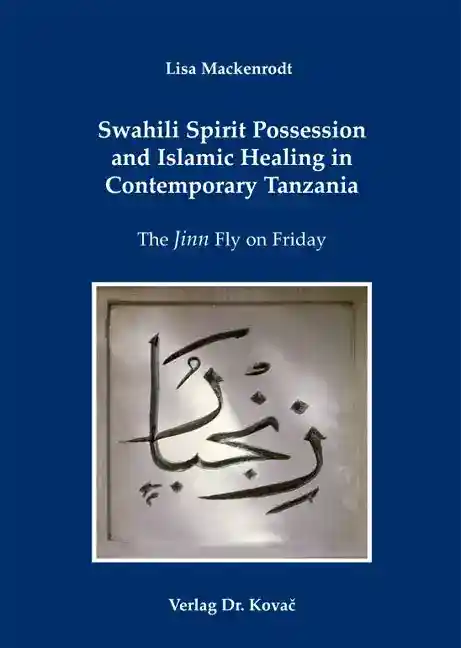Lisa MackenrodtSwahili Spirit Possession and Islamic Healing in Contemporary Tanzania
The Jinn Fly on Friday
Fern/Sehen: Perspektiven der Sozialanthropologie, Band 4
Hamburg 2011, 220 Seiten
ISBN 978-3-8300-5806-9 (Print) |ISBN 978-3-339-05806-5 (eBook)
Rezension
[...] What makes Mackenrodt’s work unique is the way she links the topic with ongoing approaches of international cooperation efforts and with the everyday lives of members of the Swahili diaspora in a Western metropolis like Berlin.
[...] To conclude, the book is highly recommended for readers with an academic interest in spirit possession and for development practitioners within the health sector. With its thought-provoking analysis, this work definitely provides food for thought and an opportunity for self-reflection.
Zum Inhalt
This account embeds Swahili spirit possession and Islamic healing rituals into its particular geographical, cultural and historical context. It gives an overview of the historical development of the syncretistic Muslim-Swahili littoral in East Africa. A special emphasis is put on Afro-Arab history in relation to the development of Swahili culture and language. Traditional Muslim healers and their rituals form the central focus of this book. By presenting typical biographies, networks, institutional structures and possible challenges healers and their clients may be confronted with, the author outlines important features regarding Swahili traditional healing. At the same time, shared aspects with indigenous cultural expressions (e.g., shamanism) worldwide are brought to light. This book gives concrete insights into the Swahili spirit pantheon and offers several anthropological interpretations of spirit possession. The focus lies on theories of embodiment, gender and religious aspects.
By presenting the roots of jinn belief in Qur’an and Hadith as well as recent dynamics surrounding orthodox and reformist tendencies regarding religion in East Africa, this book puts spirit possession into context. It is argued that belief in spirits is a modern, urban phenomenon. Traditional healers are analyzed as agents in complex settings. In a chapter on biomedicine, Mackenrodt explores the differences between spiritual and non-spiritual world-views and comments on the boundaries of psychiatry and anthropology. Furthermore, Tanzania is depicted as a society considerably affected by global politics, HIV/Aids and NGO activities. Mixing theory with interview narrative, this compelling account invites the reader on a journey where the tangible realities of life in Tanzania and Zanzibar Island are slowly revealed. The reader discovers a world-view where ritual healing and biomedical expertise are not necessarily antithetical. In fact, they may be complementary elements that indeed form a part of the pluralistic medical system of the Swahili coast, a region which has been exposed to a multitude of often contradictory influences for centuries. Last not least, interviews with Swahili migrants in Germany contextualize jinn belief in a globalized world.
This book is highly recommended for scholars interested in African Islam, individuals working in public health in East Africa, as well as anyone interested in contemporary expressions of holistic healing. Author Lisa Mackenrodt has studied cultural anthropology and comparative religion in Berlin and Heidelberg. She has spent 16 months in Tanzania, conducting ethnographic fieldwork and working with development projects.
Schlagworte
African StudiesAIDSComparative ReligionCultural AnthropologyEast AfricaEthnologyFieldworkHealersHIVIndigenous RitualIslamJinnSocial AnthropologySoziologieSpirit PossessionTanzaniaTraditional MedicineIhr Werk im Verlag Dr. Kovač

Möchten Sie Ihre wissenschaftliche Arbeit publizieren? Erfahren Sie mehr über unsere günstigen Konditionen und unseren Service für Autorinnen und Autoren.
